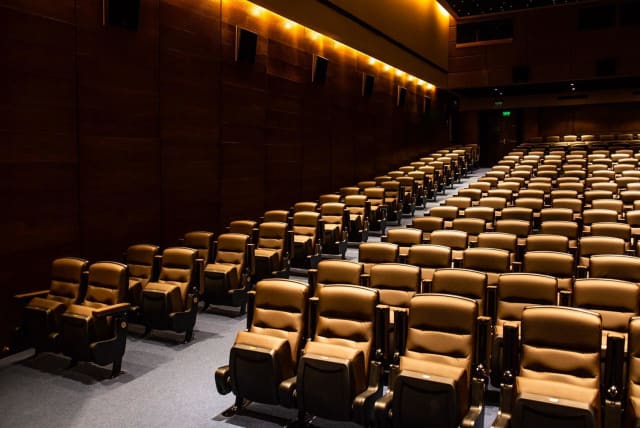Most bands and musicians spend their entire lives working towards a career in music, but Jerusalem-based RetroAct and its lead guitarist Elisha Ledgley came to it by frustration – fitting for an angsty, grunge rock band.
While Ledgley believes he was always going to give music a shot, the band formed naturally during COVID-19 as a response to limited room for creativity between lockdowns.
“We’re not even really musicians,” he jokes. “Well, I guess we are now.”
With upcoming performances in Tel Aviv at the Lincoln Bar, Culture Bar and Levontin 7, RetroAct are spreading their performance prowess throughout the city. For the group, many Tel Aviv performance venues suit the sound they are producing. As a rock band in every sense of the word, it’s difficult for smaller venues to contain their passion.
“It’s really hard to perform in little caves, the audiences get earaches,” he says.
After the release of their second album Mark It Zero in 2022, RetroAct received a surprising amount of audience streams and features on Spotify playlists.
“It was a really nice surprise. We’re still alien to the music scene and that helped put us on the map,” he says.
The group consists of childhood friends Ledgley, drummer Gadiel Weiss, and bass player Moshe Drucker. While RetroAct are not new to music itself, their band members have only just begun experimenting with unfamiliar instruments. With experience in piano only, Drucker had never played bass until the band’s formation, Weiss started drumming in 2019 and Ledgley is a self-taught electric guitarist.
Born in Israel to Canadian and Swiss parents who made aliyah, Ledgley grew up in Jerusalem until he moved to Switzerland with his mother at age 15. With not quite enough German to get through highschool and no real sense of belonging, he struggled to adapt to the different environment and culture
“Eight o’clock really meant 8 o’clock,” he laughs.
Ledgley's process of making music
AFTER JUST one year, Ledgley returned to Israel on his own and has lived there ever since.
Eleven years later the talented songwriter and performer has as many as 100 songs sitting on the back burner.
“The goal is just to make music. Even though only 10-15% are really good, we just love the process of making music.”
When it comes to writing music, Ledgley avoids the obvious.
“We like to keep the music vague,” he says.
“I want the audience to take away what they felt from the music.”
Legdley has always enjoyed music in this way, and he wishes the same for his listeners. He explains that he writes from a somewhat subconscious state, choosing to let the melody and words flow naturally.
“I don’t think about it when I’m writing it, sometimes it will rhyme and sometimes it won’t,” he says.
“I start a riff and it just goes from there.”
RetroAct wants to keep the rock genre alive. Feeling as though he missed the “golden age” of music between the 60s and 90s, Ledgley and the band bring diversity to an industry they believe is focused on one-hit-wonder pop hits with no meaning. More than for any other reason, he says, the group was formed to resist the never-ending creation of mainstream pop music that has never reflected them.
“People don’t have an attention span longer than three minutes, the world is terrible [in this aspect],” he says.
“No one takes risks in music anymore.”
It is this frustration that fuels the band and what Ledgley hopes will put them on the map.
“I think if we keep making music and doing our thing, we will get recognized,” he says.
Ledgley’s aim is not fame, he just wants to create music that he would want to listen to.
“My dream is to have a cult following,” he says.
“I want to be able to walk down the street, unbothered, but also sell out our shows.”
Despite their constant creation of music and a steadily growing following, there is a lot of uncertainty for the band. As a completely self-funded, self-produced and self-distributed group, the individual members must balance RetroAct and their own day-to-day lives and jobs.
For most self-funding bands and musicians, no matter the artistic cost, getting signed by a label is the priority. RetroAct are more focused on maintaining their creative integrity, although they would be open to “a label that helps keep our authenticity, that helps the band.”
Consequently, the band are reliant on the support of their creative friends for music video productions, the covers of their albums and singles, posters and more.
“I’m surrounded by talented friends who thankfully all love rock,” he says. “It’s like a commune of artists.”
With a new album in the works, an assortment of shows planned and a more official tour slated for later this year, RetroAct’s trajectory is heading skywards.
The group will perform at Levontin 7 on June 26. Book tickets at: levontin7.com/events/homesick-aliens








































































































